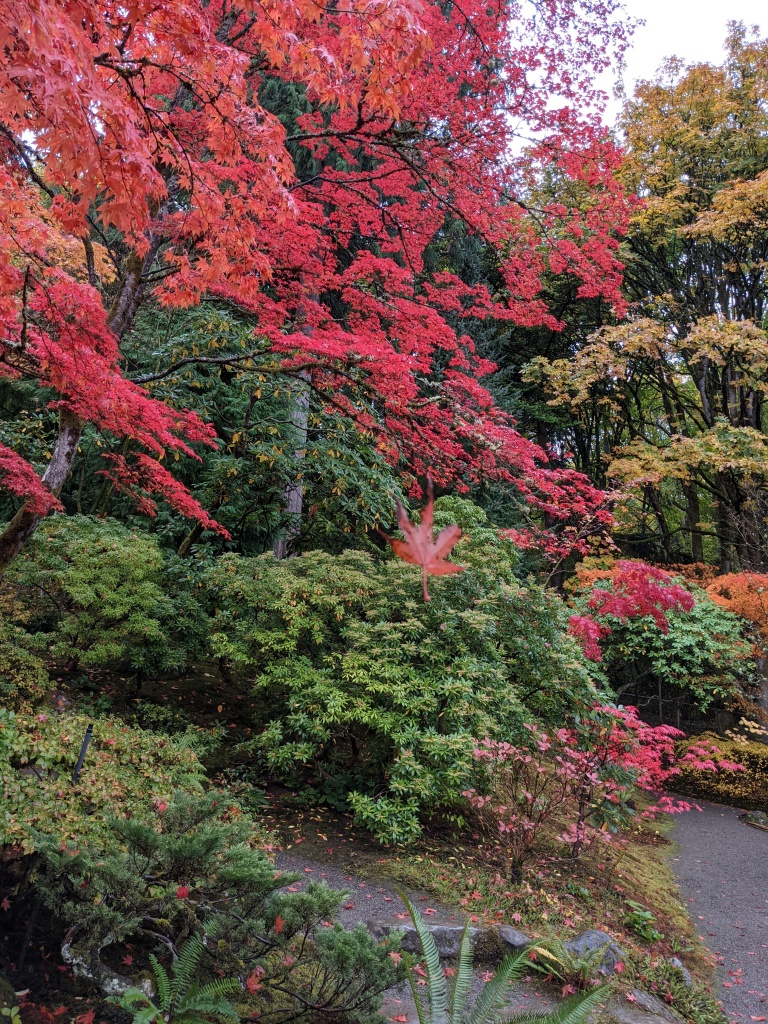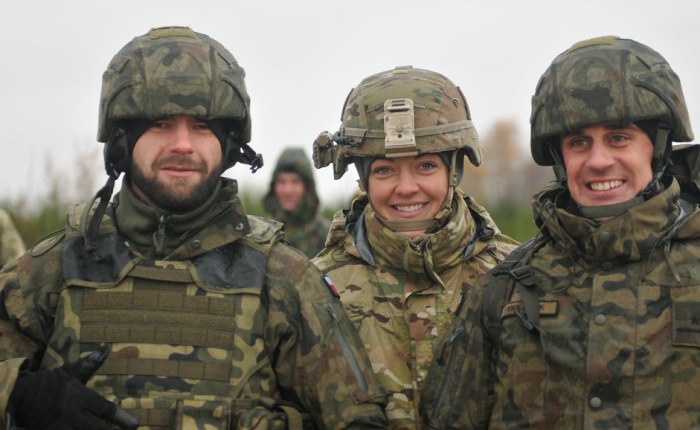I recently finished a fascinating book called The Extended Mind. (If you’re on Goodreads, you can find my review here.) It covers all sorts of realms where we store intelligence, adaptation, knowledge, and wisdom beyond the skull, starting with the rest of our own bodies. I’ve been all up in listening to my body since I started body scan meditation over a decade ago, but interpreting that as a kind of intelligence is new for me. The combination of body awareness, interpretation, and situational analysis has had some interesting results of late. Here’s one example.
I did a session of “below the belt” exercises yesterday, following my virtual kickboxing platform, and decided to perform the dead lifts I usually skip because they always hurt my back. They weren’t so bad this time, but I still had some pain. B was up when I finished, so I mentioned it to him. I showed him what I was doing & asked what could be wrong. He said I was bending my back. I said I wasn’t. He demonstrated. I didn’t see the difference. Eventually he said I should tuck my butt more, and that made sense. I tried it. He might be right. Pretty dull scene.
Behind the scenes: drama! When he said I was doing it wrong, I immediately got defensive. I noticed this when we were moving cedar planters in the yard over the summer, too. B said I was lifting with my back and I responded maturely with something like, No I’m not! or So’s your mom! and left both of us mildly annoyed. I was just as defensive this time, but decided to be “adult” and power through it. Once the instruction was over, I took a shower and sat down to unpack what had actually happened.
What actually happened is that when he corrected my form, he used a tone he doesn’t use often – slightly excited, slightly loud, and with a bit of upspeak at the end of the sentence. My body immediately went defensive. I could feel it: a tension that my brain interpreted as a threat, and to which I immediately wanted to respond with denial. I assume it’s a holdover from childhood, from a father who responded to every mistake and demonstration of ignorance as if I were deliberately fucking with him. This would lead to a long (sometimes hours long) narcissistic and inane lecture or interrogation in which I was not learning or growing or investigating, but just desperately trying to come up with the answer that would get him to stop.
The response is different with B – I don’t see him as a threat, but the physical tension motivated by the tone caused me to react with a defense of my intelligence, an ego defense that makes it impossible to learn. I didn’t forget about the yard incident; I knew my response was not ideal, but I assumed it was embarrassment, not wanting to be wrong. The thing is, I like being wrong these days; I’ve actively worked on detaching any ignorance I unwillingly harbor from my self-esteem, or from myself at all. It’s been incredibly liberating, and these days I usually don’t have to work through much of my own shit before I can come to a place of openness and acceptance. Why was this different? Well, it turns out I’m more forgiving of content than style. If B had said the same words with a different inflection, there would have been nothing to overcome. I memorize the exact phrasing of every singer or every song I’ve ever liked, and apparently the exact tone of every phrase that has ever hurt or humiliated me. The ears keep the score.
Though I didn’t fully understand why it was happening, I was able to observe my body with just enough distance to recognize that my reaction yesterday was unreasonable and unhelpful. I couldn’t make it go away, but I could decide how to react to that feeling. Instead of saying, “you’re wrong” again, and giving into the amygdala hijack that was taking place in my monkey brain, I decided to white knuckle my way through it and take the imperfectly articulated advice.
Progress, but still not ideal.
Once I figured out what had happened, I talked to B about it. I said he had used a certain tone that he doesn’t use often, and that probably came out of concern for my physical safety, but which my body interprets as a threat to my intelligence. My reaction to that type of threat is to get defensive, which makes it hard for me to reap any value from what he’s saying. He said he wasn’t entirely sure where the tone came from, and didn’t know if he could stop himself from ever using it again. I agreed, but said I wanted to explain what was happening so that we would each have a better understanding of the dynamics underlying those interactions in the future. I think we both walked out of the assessment without any wounds or additional defenses, and with a better understanding of each other.
I don’t know whether his tone was caused by fear, if he uses it with other people, or if investigating that fear might help him modulate his communication style in similar situations with me or others going forward. That’s his journey. For my part, I now have an ally in breaking up similar chain reactions going forward. That’s potentially one less wound, one less grudge, one less bitter pill to carry around and cram down someone else’s throat.
Healthy for me? check
Healthy for this relationship? check
Good for the world? check.
Is this ridiculously boring? It sure feels like it might be. (Ever listen to someone talk about meditation? I sat without moving! I observed my breathing! Jesus.) To me it is thrilling. It’s like I’ve been hauling around this box of tools for decades, and I suddenly know how and when to use them. All these gifts, all these answers that I didn’t know were here all along.
Still haven’t found the tool that fixes my employment situation. More on that another day.







 I had a lovely day today. Nothing special. I had planned to spend most of the day writing and reading, but instead wiled away the hours interacting with folks and art. My journey began at a too-popular bread n breakfast place. Tables freed up one at a time as I anxiously waited for a place to plant my incipient biscuit sandwich. A 4-top opened up when I reached the front of the line, and I took it a little guiltily, checking to see if a nearby twosome was getting up anytime soon so I could swap out my spot.
I had a lovely day today. Nothing special. I had planned to spend most of the day writing and reading, but instead wiled away the hours interacting with folks and art. My journey began at a too-popular bread n breakfast place. Tables freed up one at a time as I anxiously waited for a place to plant my incipient biscuit sandwich. A 4-top opened up when I reached the front of the line, and I took it a little guiltily, checking to see if a nearby twosome was getting up anytime soon so I could swap out my spot.  I haven’t put together any real resolutions for this year, though they always tempt me. My fantasies of symbolic slate clearing (post-rain, new years, moving) is at odds with my aversion to goal setting, so here I sit, wobbling on as usual. I suppose this behavior is more Buddhist, even if I got there by defeat instead of acceptance.
I haven’t put together any real resolutions for this year, though they always tempt me. My fantasies of symbolic slate clearing (post-rain, new years, moving) is at odds with my aversion to goal setting, so here I sit, wobbling on as usual. I suppose this behavior is more Buddhist, even if I got there by defeat instead of acceptance. I got a flu shot last month. This was, like, a BIG THING. And yes, goddamnit, I am going to connect it to spirituality.
I got a flu shot last month. This was, like, a BIG THING. And yes, goddamnit, I am going to connect it to spirituality. I found The Perks of Being a Wallflower crammed into my friend’s bookshelf as I was waiting for the group to gather for hardcore boardgame play. I loved the movie, and it turns out I went to school with the writer (and director), and he’s apparently a good guy, so I borrowed the book and gobbled it down in less than 24 hours.
I found The Perks of Being a Wallflower crammed into my friend’s bookshelf as I was waiting for the group to gather for hardcore boardgame play. I loved the movie, and it turns out I went to school with the writer (and director), and he’s apparently a good guy, so I borrowed the book and gobbled it down in less than 24 hours.